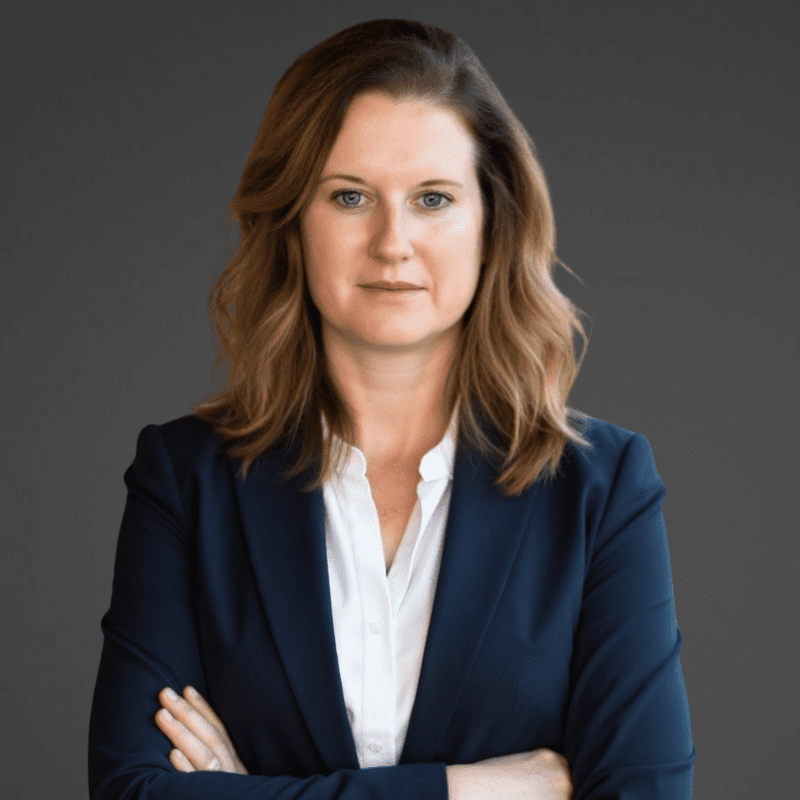Nasdaq #TradeTalks: Q&A with Financial Services Attorney Alex Alberstadt
About The Video
With the U.S. Securities and Exchange Commission (SEC) filing the first ever mutual fund to ETF (exchange traded fund) conversion on behalf of Guinness Atkinson Asset Management & SmartETFs, Practus Partner Alex Alberstadt speaks with Jill Malandrino of Nasdaq#TradeTalks about her monumental role in leading the transaction in this insightful interview.
Full Video Transcription
Jill Malandrino: “Welcome to Nasdaq Trade Talks. I’m Jill Malandrino, Global Markets Reporter at Nasdaq. Joining me is Alex Alberstadt, a partner with law firm Practus. Alex advises investment companies, Boards of Directors, and investment advisors on corporate governance, state and federal regulatory matters, compliance, and of course operational and business issues. She joins me today to discuss the first ever conversion of a mutual fund to an exchange traded fund or an ETF. Alex it’s great to have you with us welcome to trade talks.”
Alex Alberstadt: “Thanks so much for having me, Jill.”
Jill Malandrino: “And Alex, tell us about this transaction.”
Alex Alberstadt: “So as you noted, this is the first transaction where we’re converting an existing operating mutual fund to an exchange traded fund or ETF. This is the first time this transaction is actually going through. It’s been a topic that’s been discussed in our industry for about 10 or so years, and we are actually taking two existing mutual funds and we will be converting them to exchange traded funds and we’re doing that by merging the existing mutual funds each into their own shell that will operate as an ETF.”
Jill Malandrino: “And who’s the client?”
Alex Alberstadt: “So the client for this is Guinness Atkinson Asset Management. They’re an investment advisor that is very focused on human progress. They’ve been managing money for more than 20 years in the United States, and they have a sizable set of funds overseas as well. And they have been managing these mutual funds for more than 10 years.”
Jill Malandrino: “And Alex, what type of documents were filed for this transaction? What’s actually happening here?”
Alex Alberstadt: “This transaction is structured as a merger of the mutual fund – each individual mutual fund into an ETF shell. So that means that we filed an information statement prospectus for each transaction, and that document is filed with the SEC, it’s reviewed by the SEC, and it explains to shareholders exactly what’s happening with their investment.”
Jill Malandrino: “And why is this transaction significant?”
Alex Alberstadt: “Well, it’s significant among other reasons because it is first, but in addition, it is significant because it’s a way to let mutual fund sponsors and investment advisors deliver to shareholders a more cost- effective product.
Shareholders generally speaking are looking for the lowest total overall cost for their investment. Operating in the ETF is, generally speaking, a lower cost structure.
So this is a way that mutual fund advisors and sponsors can take funds that they already have in existence, convert them into this lower cost product and still retain their relationship with their investors – meaning their mutual fund shareholders.”
Jill Malandrino: “And what’s going to change at the end of the day?”
Alex Alberstadt: “At the end of the day, what is going to change? Really not very much, except that it’s going to be an exchange traded fund instead of a mutual fund.
So from the investor perspective, they’re getting the same investment management capabilities that they had in a mutual fund. The difference is that they’ll be able to transact in that fund during the day, during the trading day. So, for example, in a mutual fund if you wanted to exit the fund you would place your order and you’d wait for it to be actioned after the close of trading on that day.
In the ETF you would place your order over the exchange and the transaction would be executed at the market price when it’s next executed.”
Jill Malandrino: “And Alex, to wrap up here, why did Guinness Atkinson take this approach?”
Alex Alberstadt: “They wanted to deliver a benefit to shareholders. I mean they really wanted to deliver the same investment strategy but at a lower cost. They wanted to give shareholders liquidity during the day. That’s important to a lot of shareholders in today’s markets where we have major swings and market halts, lots of volatility. Shareholders want to be able to exit the transaction in the middle of the day and not wait.
And then the third key ingredient to this is taxation. So in a mutual fund, you buy shares with cash and when you redeem, you get paid out in cash.
That means your fund has to sell underlying portfolio investments in order to meet redemption obligations. In the ETF structure, that doesn’t happen. So you buy and sell your shares on the exchange and only authorized participants, which are very large institutional shareholders, are actually transacting with the mutual fund for cash.
That means that you’re not going to incur capital gains outcomes because your fund manager doesn’t have to sell portfolio securities to pay out redemptions in cash. So for an average investor, who’s interested in making an investment, that means they’re not going to be subjected to tax consequences because of other shareholder activity. And we think that’s important.”
Jill Malandrino: “All right Alex, we appreciate the insight thanks for joining us on trade talks and thanks for joining me. I’m Jill Malandrino, Global Markets Reporter at Nasdaq. Thank you.”
Check out the Youtube video of the Q&A here.





